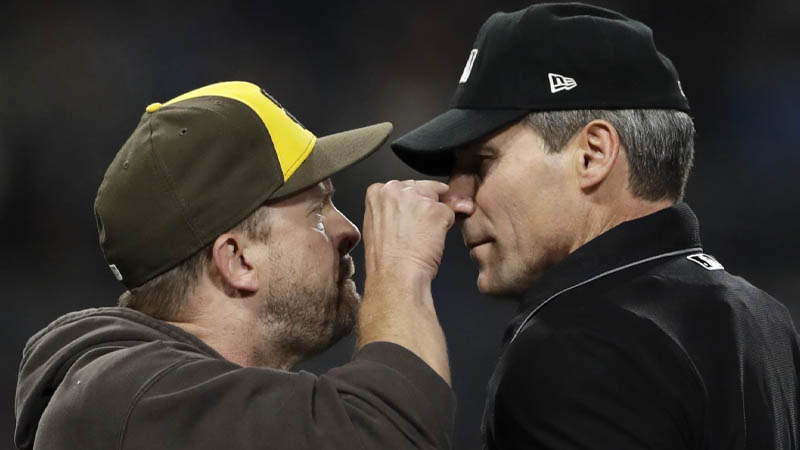Despite his reputation as Major League Baseball’s most despised umpire, Angel Hernández, confirmed his retirement this Monday, leaving behind a legacy of controversy mixed with an unexpectedly affable demeanor on the field. Players have often described Hernández as an eager conversationalist, affable and outgoing, qualities that seemed at odds with the high-stakes environment of big league umpiring.
Hernández’s umpiring career, spanning over three decades, was marked by numerous blunders that led to a significant amount of criticism from both fans and players. Despite the friendly exchanges and personal inquiries about players’ families, Hernández struggled to overcome the negative perception created by his umpiring errors. As one American Leaguer described him, Hernández was “a sweetheart,” yet this endearment did little to mitigate the overall frustration with his officiating skills.
The announcement of his retirement was met with widespread jubilation among baseball fans, evidenced by the re-viral spread of clips showcasing his many officiating missteps. His career became synonymous with poor officiating, and his name often surfaced as the face of umpiring errors within the community.
Hernández’s legacy in MLB is unfortunately marred by these high-profile mistakes, beginning notably in July of 1998 when he incorrectly ruled Michael Tucker of the Atlanta Braves safe in a game-ending play. His history includes numerous other contentious decisions, including several overturned calls during the early innings of Game 3 in the 2018 ALDS.
Despite a career of confrontations and errors, Hernández was an outlier in other aspects. As a Cuban-born, Miami-raised Latino, he provided Spanish-speaking players a relatively rare opportunity to communicate in their native language with an umpire. His presence highlighted the lack of Hispanic representation among MLB umpires, which stands in stark contrast to the demographic of MLB players.
Hernández also faced challenges within the league’s structure. In 2017, he filed a lawsuit against MLB for racial discrimination, claiming he was overlooked for promotions to crew chief and high-profile playoff games due to his ethnicity and tenure. However, MLB defended its stance by pointing to his poor performance record.
In his farewell statement, Hernández reflected on his career with a sense of fulfillment, emphasizing the enjoyment and camaraderie he experienced while living out his childhood dream. Despite the controversies and the often thankless nature of the job, he cherished the relationships and the experiences he gained.
As MLB moves on from the Hernández era, the league and its fans will likely remember him as a complex figure—beloved for his personality, yet frequently criticized for his professional performance. Hernández’s departure underscores the bittersweet nature of his career, marked equally by personal connections and professional missteps.


